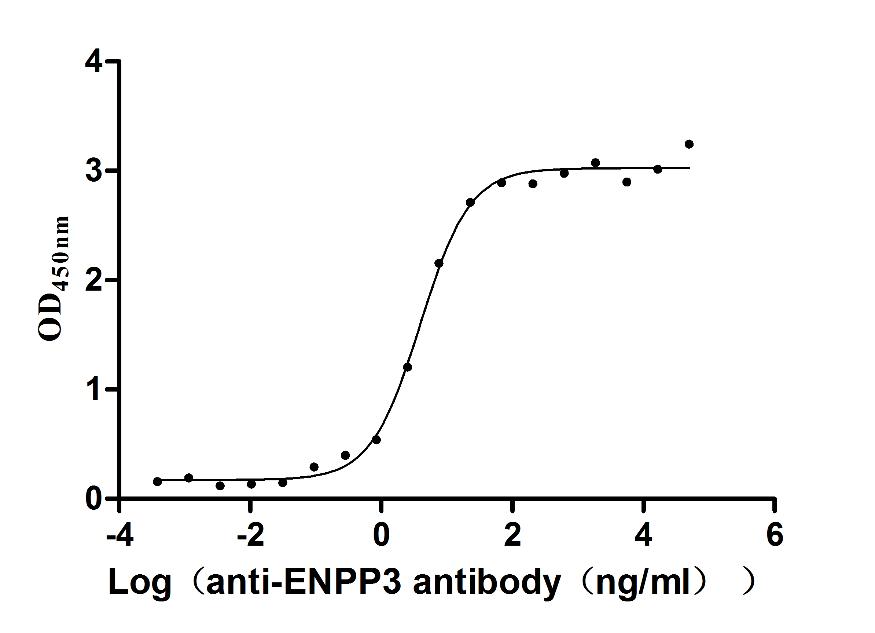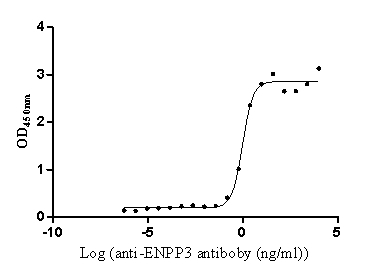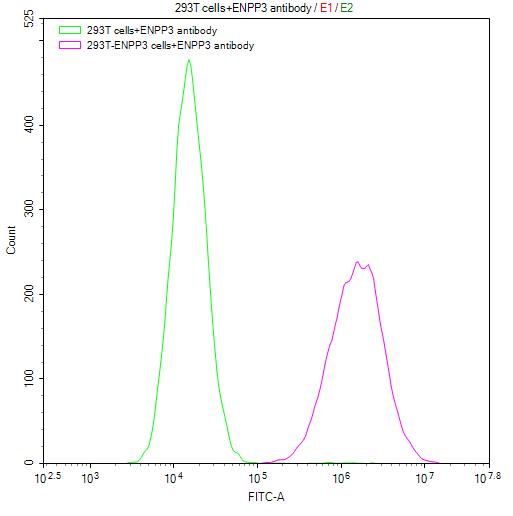The ENPP3 monoclonal antibody was generated using the recombinant human SLC39A6 protein as an immunogen. The cDNA of the ENPP3 monoclonal antibody was sequenced to obtain the antibody gene, which was cloned into a plasmid vector. The plasmid vector was then transfected into host cells using a suitable transfection method. The resulting ENPP3 recombinant monoclonal antibody underwent purification through affinity chromatography and was subsequently tested for specificity through ELISA. The antibody demonstrated binding capabilities to the recombinant human ENPP3 (CSB-MP4278MOV) with an EC50 range of 3.313-4.724 ng/mL. It can react with human and macaca fascicularis ENPP3 proteins.
ENPP3 is a transmembrane glycoprotein that plays a role in the regulation of cell growth, differentiation, and mineralization. It is involved in the hydrolysis of extracellular nucleotides to generate inorganic phosphate and nucleoside diphosphates, which are important for the regulation of purinergic signaling pathways. ENPP3 is expressed in various tissues, including bone, kidney, and liver, and its dysregulation has been linked to a number of diseases, including calcification disorders, cancer, and inflammation.








